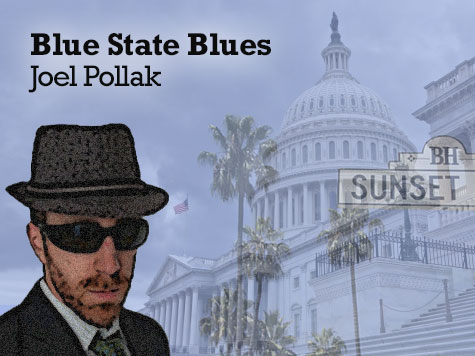I had planned to write this column about my experiences this week covering the protests in Berkeley. How a mob of self-styled radicals hijacked the legacy of Martin Luther King, Jr. to incite violence against police. How people claiming to be fighting for freedom shut down a student forum featuring a speaker who, if they cared to inform themselves, probably agreed with them on the substance of their complaints about “the police state.”
And then, early on this rainy California winter morning, I happened to run into civil rights lawyer Connie Rice.
Rice is the attorney who sued the Los Angeles Police Department for over a decade over its treatment of black suspects, among other issues. In 2002, new LAPD commissioner William Bratton asked her to stop suing the cops–and to help them reform their practices instead.
Ten years later, Rice and Bratton had transformed the relationship between the LAPD and the city’s black and Latino communities. In 2012, when Rice released her memoir, Power Concedes Nothing, the police department–her old enemies–threw her a book launch party.
So I asked Rice–who is a cousin to former Secretary of State Condoleezza Rice–what she thought of the debate over the deaths of Michael Brown and Eric Garner at the hands of police in Ferguson, MO and Staten Island, NY respectively.
The problem, she says, is that there is no working relationship between police and those black communities.
“These incidents are about bad police tactics, but they are also about the black community feeling like they are targeted, and that young black men are actually slated for execution by the police,” she said.
“That may not be the case,” she adds, “but if people feel that way, you’re going to have negative interactions with police.”
I ask her if the problem is made worse by people like Al Sharpton, who show up routinely after these events and tell the community that racism is to blame, fueling negative perceptions.
She disagrees: “I do think race is a part of this, because the racial perceptions drive a lot of the behavior on both sides.
“But race is not the only thing or the main thing going on here. It’s not about black versus white. It’s about black versus cop.”
In L.A., she explains, progress began by building relationships over the long term. “Is it even possible to have a modern police force have a good relationship with black communities? The answer is yes. We’ve done it in Watts, and it took ten years. Nobody wanted to do it, but we forced the community and the police to sit down and talk…We set up instruments for intermingling, for getting to know one another, and when you have that kind of agenda set and you put some resources into it…you pretty soon forget that you hate each other.”
She hastens to add: “That doesn’t mean that the cops are going to forget the missiles that were thrown at them by the community, or that the community is going to forget that police killed their fathers, their brothers, their sons. But build cooperation, respect, and eventually you’re going to have a partnership.”
Rice describes how the LAPD brings needed resources into the Watts area, such as mobile medical units and soccer leagues. Gang cops have even brought poor children from Watts on weekend field trips to the beach for the first time in their lives.
Police, Rice says, needs to stop thinking of black men as potential criminals, and start thinking of them as their own sons.
“I think we’ve shut down any productive discussion because everyone’s afraid of being called racist,” she adds.
I ask: isn’t President Barack Obama making things worse, then, by insisting that recent events are driven by race?
“Talk to the black community,” she says, “and they’ll say he does’t talk about race enough.” She commends the president for being “low key,” and says bringing in Attorney General Eric Holder is a good idea.
I push back: Holder is one of the most polarizing figures in America today. He runs a department that is highly politicized, never mind radicalized. And then there is the matter of that “nation of cowards” speech.
Rice seems taken aback: she thought that Holder was trying to open a dialogue. I point out that his speech shut dialogue down completely, and explain why.
Rice and I agree to disagree–though I sense she is interested in my view. Perhaps she has learned something from this conversation as well.
Perhaps liberals and conservatives should bump into each other more often.

COMMENTS
Please let us know if you're having issues with commenting.